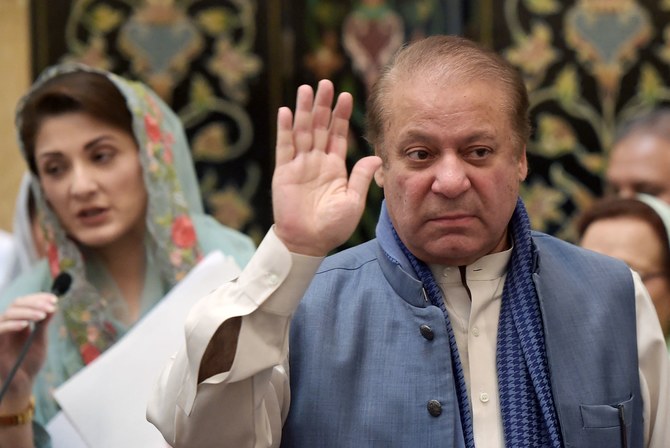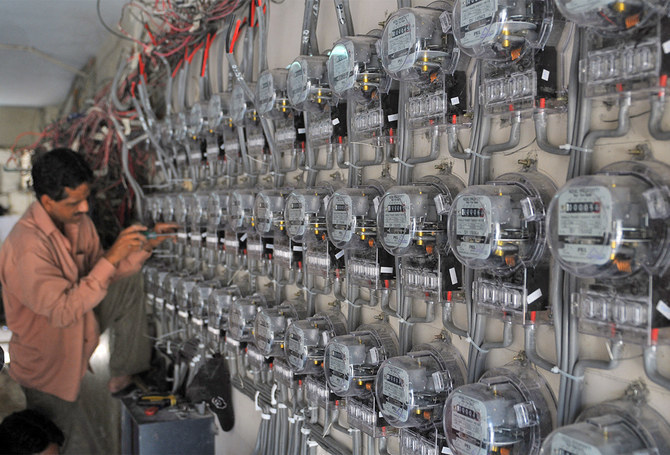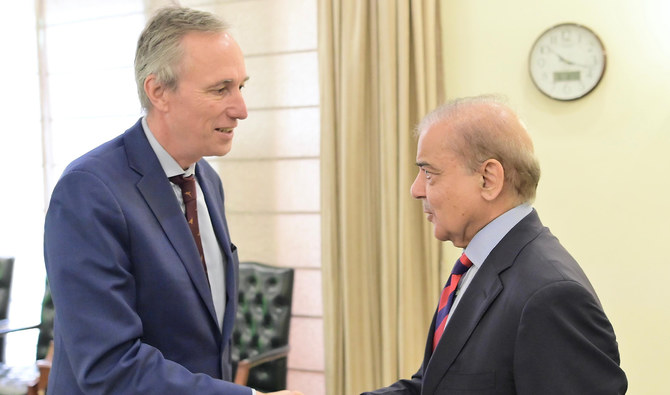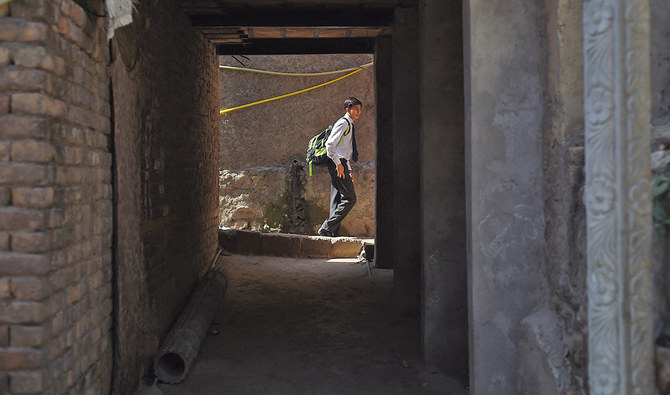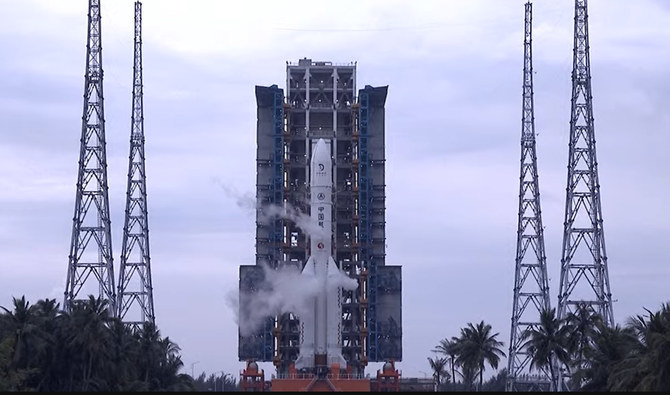ISLAMABAD: Pakistani Interior Minister Sheikh Rasheed Ahmed said on Tuesday the passport of former three-time Prime Minister Nawaz Sharif would not be renewed by the government after it expired today as his name was on a no-fly list.
The 70-year-old Sharif has been living in self-imposed exile in London after Pakistani authorities temporarily released him on bail from a seven-year prison sentence in November 2019 so he could travel abroad for medical treatment.
Sharif, who has dominated Pakistani politics for three decades, denies the corruption charges against him, claiming they are politically motivated.
Last December, a top Pakistani court declared Sharif a fugitive from the law after he failed to return home to face additional corruption charges. The same month, the interior minister announced his passport would be canceled.
“We can’t issue the passport to any man or woman who is on the Exit Control List (ECL),” Ahmed told Arab News in an interview. “He is already on the ECL ... so, even if he has a passport, we can’t issue him a renewed passport.”
The interior minister said Sharif did not want to return to Pakistan of his own choice, not because of an issue with his passport.
“He won’t come back to Pakistan. This is not due to invalid passport but if he wants to come we can issue an emergency travel document (ETD) to him,” the interior minister said.
In October this year, Prime Minister Imran Khan said in an interview he would contact his British counterpart Boris Johnson to talk about Sharif’s extradition.
Pakistan’s information minister told the media in December that Islamabad had started the legal process to reach an extradition treaty with Britain to pave the way for the UK to hand over Sharif.
Pakistan currently has no extradition treaty with Britain and there has been no immediate comment from the UK on the development. The process will likely take years and could face stiff resistance in British parliament.
“Our government is in touch with the British government to send him [Nawaz Sharif] back but they are not sending him back,” Ahmed said. “So, the thing is that this [Sharif not returning] is not from our side but this is from his side.”
Responding to the news that Sharif’s passport would expire today, senior leader of his PMLN opposition party, Raja Zafar ul Haq, said it was “political victimization” to deny a passport to a person who had led the country as PM for a record number of times.
“The government has all its focus on victimization of opposition instead of real issues faced by the country,” Haq added. “The country is facing the highest inflation, unprecedented rise in crime rate and many other problems but the government only wanted to overpower opposition,” Haq added, saying Sharif would only return to Pakistan after a surgery that had been postponed due to the coronavirus pandemic. He did not elaborate on the details of the medical procedure.
Former attorney general of Pakistan and senior lawyer Anwar Mansoor Khan said the government could refuse to issue a passport to a Pakistani but this would not affect Sharif’s stay in the UK.
“The law categorically allows the government to refuse to renew a passport or to issue a new passport,” Khan told Arab News, adding that the former PM would become a stateless person when his passport expired but could stay in the UK under British immigration laws.
“British immigration law allows a person who becomes stateless or cannot travel to his country for any valid reason,” Khan said. “He can apply for an extended visa which can be given for 10 years, that is renewable every year.”



